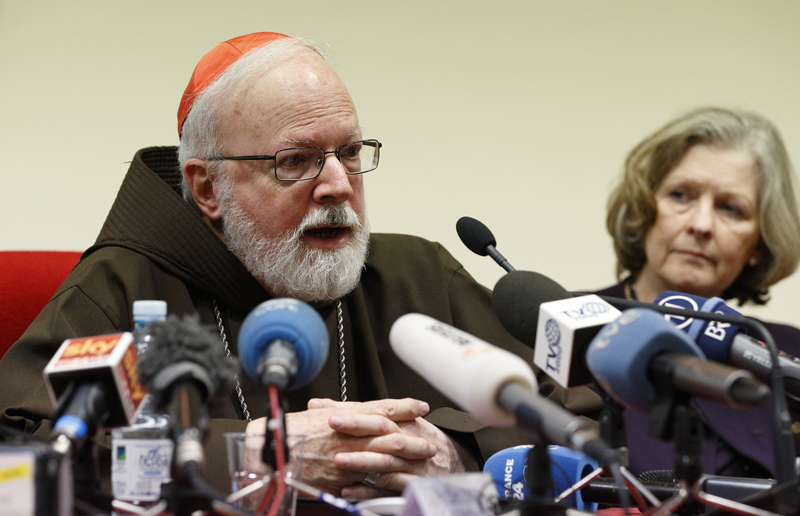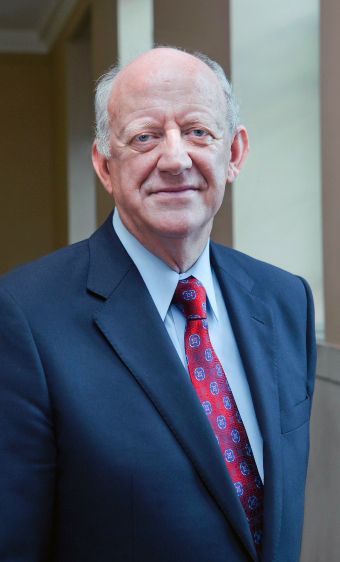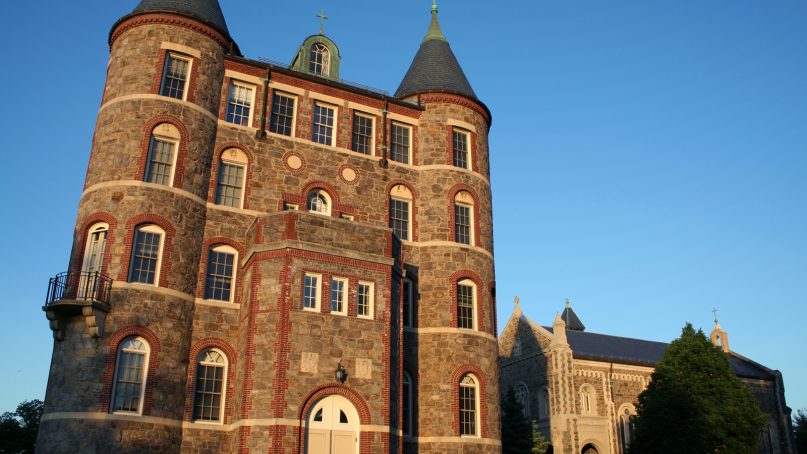(RNS) — Cardinal Sean O’Malley, archbishop of Boston, has placed the rector of St. John’s Seminary in Boston on leave and launched an investigation of the seminary’s culture following allegations of sexual misconduct at the school.
O’Malley said Friday (Aug. 10) he was responding to recent social media posts by former seminarians, adding that he could neither verify nor disprove the allegations.
According to what was claimed in the posts, “they witnessed and experienced activities which are directly contrary to the moral standards and requirements of formation for the Catholic priesthood,” O’Malley’s statement said. He also said he is “committed to immediate action to address these serious matters.”
The allegations, which were not specified in the archbishop’s statement, come two weeks after Cardinal Theodore E. McCarrick, the former archbishop of Washington, resigned from the College of Cardinals following allegations that he had sexually abused minors and adult seminarians for decades.
The continuing attention to sexual behavior among Catholic clergy suggests to some observers that a new front in the battle against sexual misconduct in the church might have opened up now, 16 years after the clergy sexual abuse scandal began receiving widespread attention in the Archdiocese of Boston.
“The sexual abuse revelations at St. John’s Seminary are just a continuation of how the Archdiocese of Boston and the Catholic Church have allowed sexual abuse to occur within its ranks for centuries,” said attorney Mitchell Garabedian, who represented many of the victims of the child sexual abuse scandal.
O’Malley said the investigation will look into the allegations as well as the “culture of the seminary regarding the personal standards expected and required of candidates for the priesthood.” He also said the inquiry will cover “any seminary issues of sexual harassment or other forms of intimidation or discrimination.”

Cardinal Sean O’Malley of Boston speaks at a news conference in Rome on Feb. 16, 2015. Photo by Paul Haring/Catholic News Service
While the archbishop’s statement does not disclose the names of the people who made the allegations, John A. Monaco, a former St. John’s seminarian, wrote in a blog post on Aug. 3 how other students had acted sexually inappropriately towards him and how his complaints had been brushed aside.
In one instance shortly after he started at the seminary, Monaco writes, a fellow seminarian asked him if he masturbated and then showed him his erect penis. In another case, at a party, after being encouraged to drink, another student groped him, Monaco alleges.
When he told a priest about the party, where seminarians who were committing themselves to a life of celibacy were reportedly cuddling one another, “He told me I needed to be more charitable and understanding with my brother seminarians.”
In a Facebook post on Aug. 7, another former St. John’s seminarian writes that he could confirm that Monaco’s account “is true and in fact there are so many similar stories about this place.”
The archdiocese did not respond to a request for comment. The former seminarians who made the allegations could also not be reached for comment.
Thomas Groome, a professor of theology and religious education at Boston College, praised O’Malley’s response to the allegations. Pope John Paul II appointed O’Malley archbishop in 2003 following Cardinal Bernard Law’s resignation after he was accused of shielding priests from consequences for sexually abusing children. O’Malley has been credited with promoting swift action and greater accountability for priests facing credible allegations of sexual abuse.
In this case, O’Malley has appointed an inquiry committee led by Rev. Mark O’Connell, auxiliary bishop of Boston; Francesco C. Cesareo, chairman of the U.S. Conference of Catholic Bishops National Review Board, which deals with matters of child and youth protection policies and practices; and Kimberly Jones, CEO of Athena Legal Strategies Group, according to the archbishop’s statement.

Thomas Groome. Photo by Caitlin Cunningham/Boston College
“I think Cardinal O’Malley has shown real leadership in addressing the whole issue of sexual abuse by clergy whether it’s with children or seminarians,” said Groome. “Given his role, it’s perfectly appropriate that he move quickly to investigate the allegations.”
Garabedian, however, described the archbishop’s actions as “nothing but spin control to deflect the ugliness of sexual abuse and indications that the church has once again allowed sexual abuse to occur within its ranks.”
In January, the Association of U.S. Catholic Priests issued a statement calling for women to play a larger role at seminaries and asserting that “human sexuality is too complex for the priestly formation system alone to assure healthy and mature celibate priests.”
The typical seminary is “significantly buffered if not largely isolated from the larger world and parish-level,” the association said. If seminarians were allowed to engage more with the “diocesan presbyterate and parish communities,” it would provide “better community contexts for forming a candidate for servant priesthood.”
Groome wonders if in the aftermath of the McCarrick resignation, “we are going to have a lot of seminarians coming forward and saying, ‘Me too.’”
As to what is needed going forward, Groome said, “I think we have to consider whether isolating a group of young men is the wisest way to train them for priestly ministry in the present-day church.”
O’Malley emphasized the importance of trust in the priesthood.
“The ministry of the Catholic priesthood requires a foundation of trust with the people of the Church and the wider community in which our priests serve,” he said in the statement. “I am determined that all our seminaries meet that standard of trust and provide the formation necessary for priests to live a demanding vocation of service in our contemporary society.”





